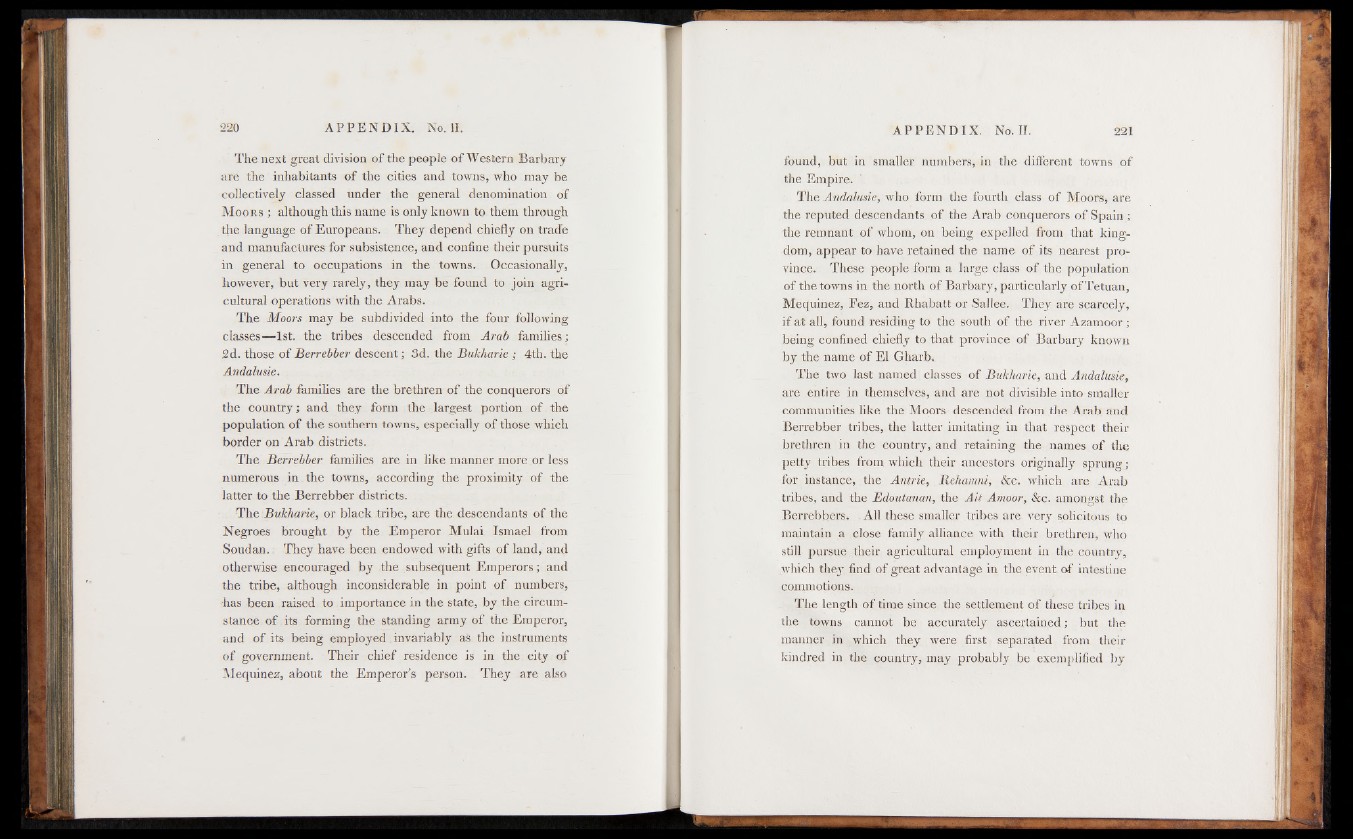
The next great division of the people of Western Barbary
are the inhabitants of the cities and towns, who may be
collectively classed under the general denomination of
M oors ; although this name is only known to them through
the language of Europeans. They depend chiefly on trade
and manufactures for subsistence, and confine their pursuits
in general to occupations in the towns. Occasionally,
however, but very rarely, they may be found to join agricultural
operations with the Arabs.
The Moors may be subdivided into the four following
classes—1st. the tribes descended from Arab families;
2 d. those of Berrebber descent; 3d. the Bukharie ; 4th. the
Andalusie.
The Arab families are the brethren of the conquerors of
the country; and they form the largest portion of the
population of the southern towns, especially of those which
border on Arab districts.
The Berrebber families are in like manner more or less
numerous in. the towns, according the proximity of the
latter to the Berrebber districts.
•The Bukharie, or black tribe, are the descendants of the
Negroes brought by the Emperor Mulai Ismael from
Soudan. They have been endowed with gifts of land, and
otherwise encouraged by the subsequent Emperors; and
the tribe, although inconsiderable in point of numbers,
•has been raised to importance in the state, by the circumstance
of its forming the standing army of the Emperor,
and of its being employed. invariably as the instruments
of government. Their chief residence is in the city of
Mequinez, ahout the Emperor’s person. They are also
found, but in smaller numbers, in the different towns of
the Empire.
The Andalusie, who form the fourth class of Moors, are
the reputed descendants of the Arab conquerors of Spain ;
the remnant of whom, on being expelled from that kingdom,
appear to have retained the name of its nearest province.
These people form a large class of the population
of the towns in the north of Barbary, particularly of Tetuan,
Mequinez, Fez, and Rhabatt or Sallee. They are scarcely,
if at all, found residing to the south of the river Azamoor;
being confined chiefly to that province of Barbary known
by the name of El Gharb.
The two last named classes of Bukharie, and Andalusie,
are entire in themselves, and are not divisible into smaller
communities like the Moors descended from the Arab and
Berrebber tribes, the latter imitating in that respect their
brethren in the country, and retaining the names of the
petty tribes from which their ancestors originally sprung;
for instance, the Antrie, llehamni, &c. which are Arab
tribes, and the Edoutanan, the Ait Amoor, See. amongst the
Berrebbers. All these smaller tribes are very solicitous to
maintain a close family alliance with their brethren, who
still pursue their agricultural employment in the country,
which they find of great advantage in the event of intestine
commotions.
The length of time since the settlement of these tribes in
the towns cannot be accurately ascertained; but the
manner in which they were first separated from their
kindred in the country, may probably be exemplified by